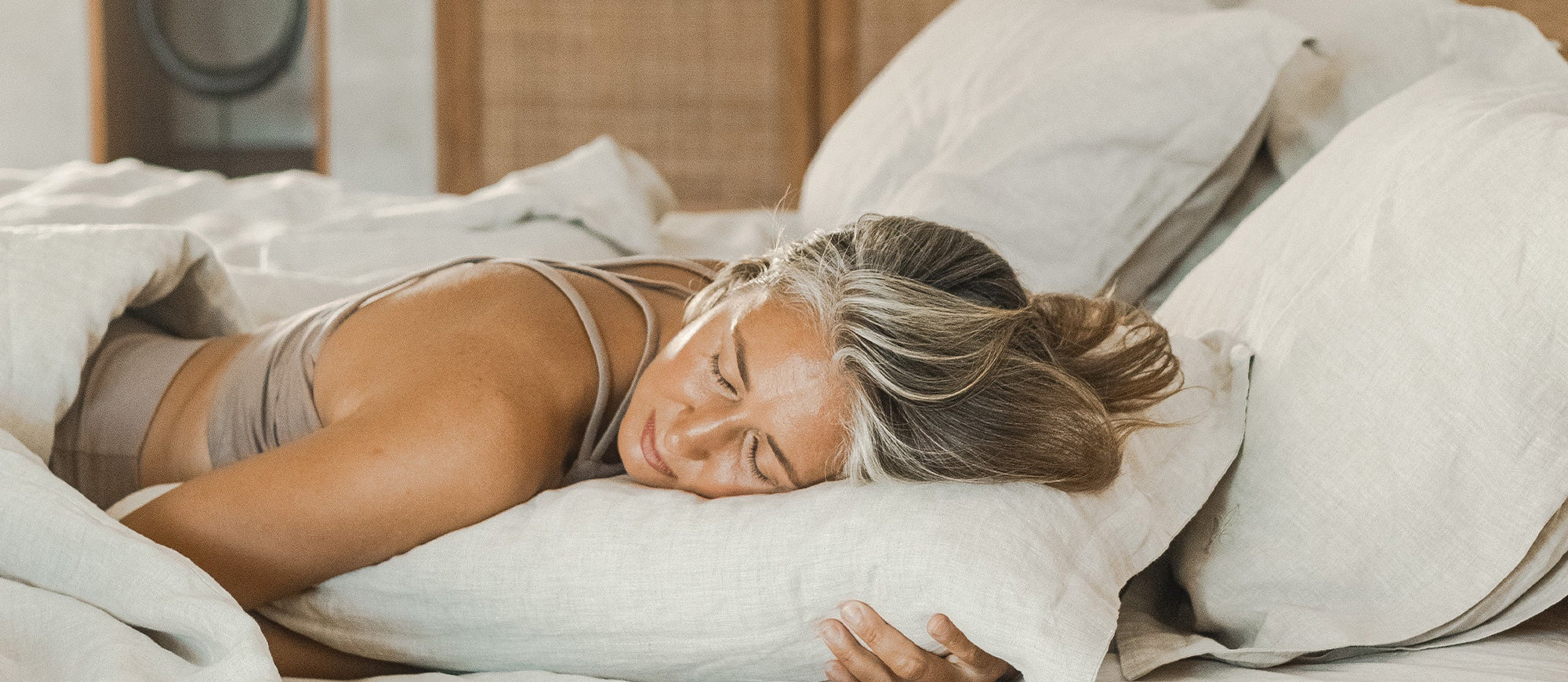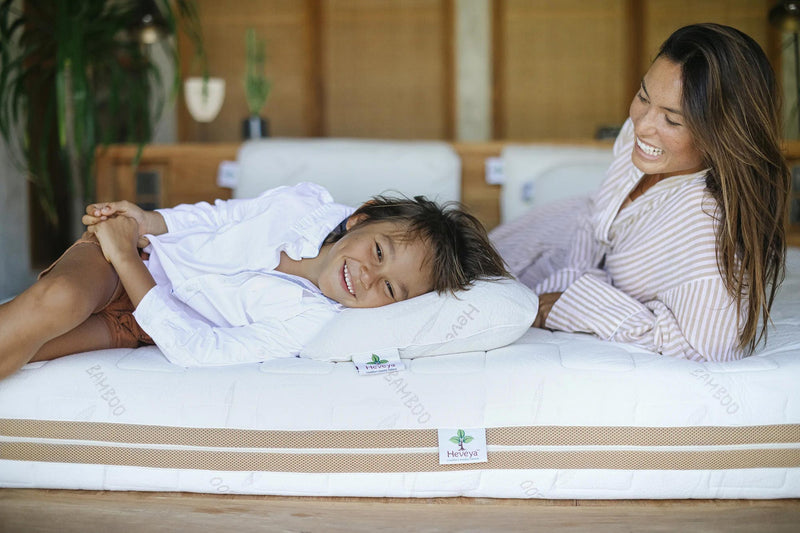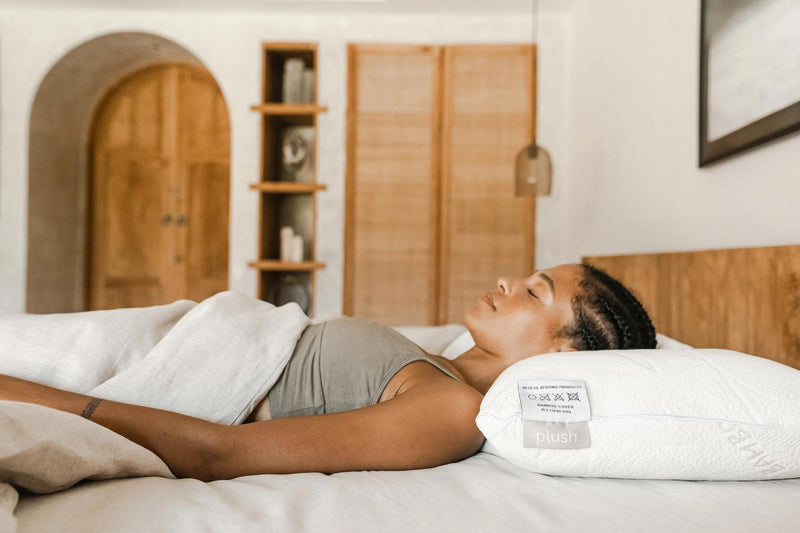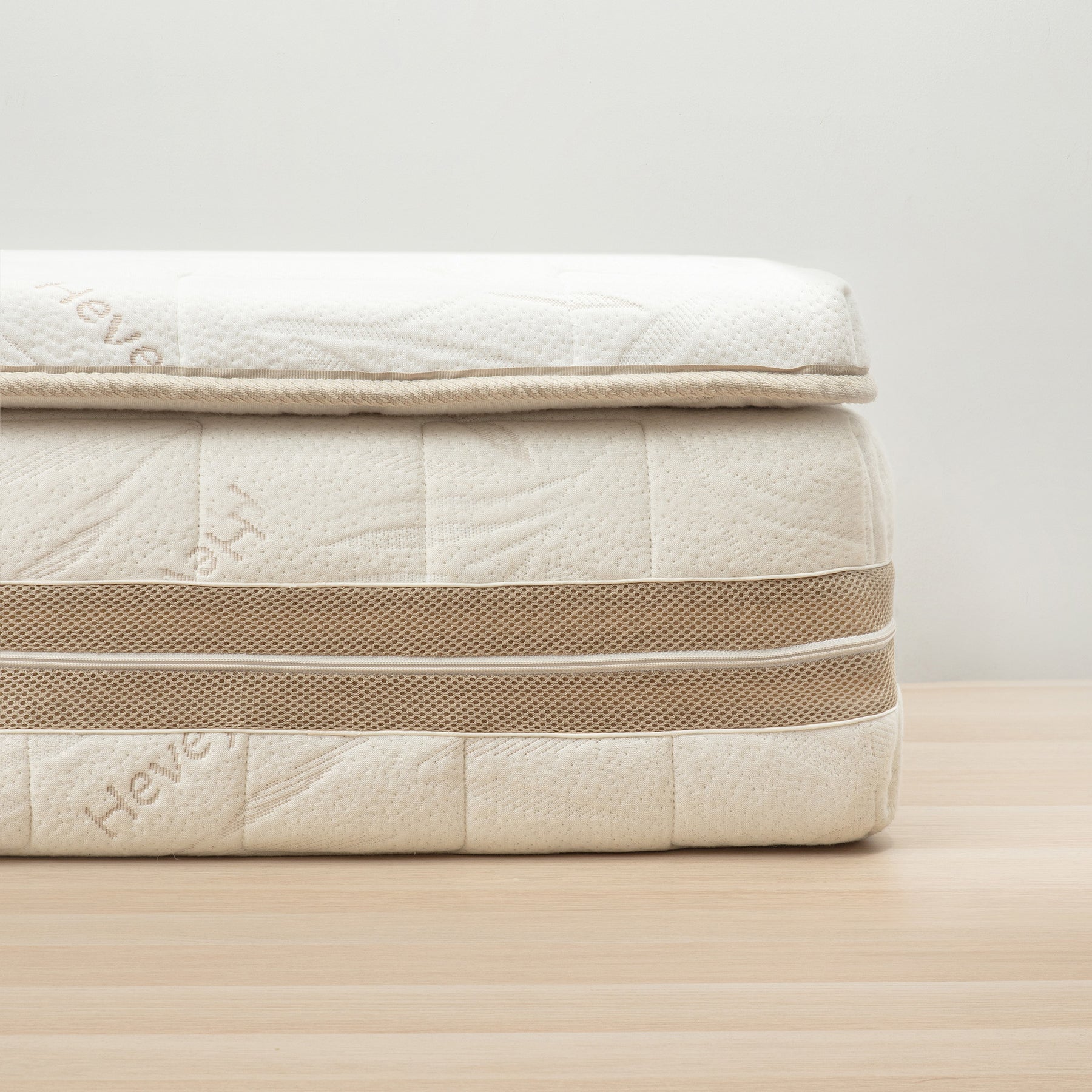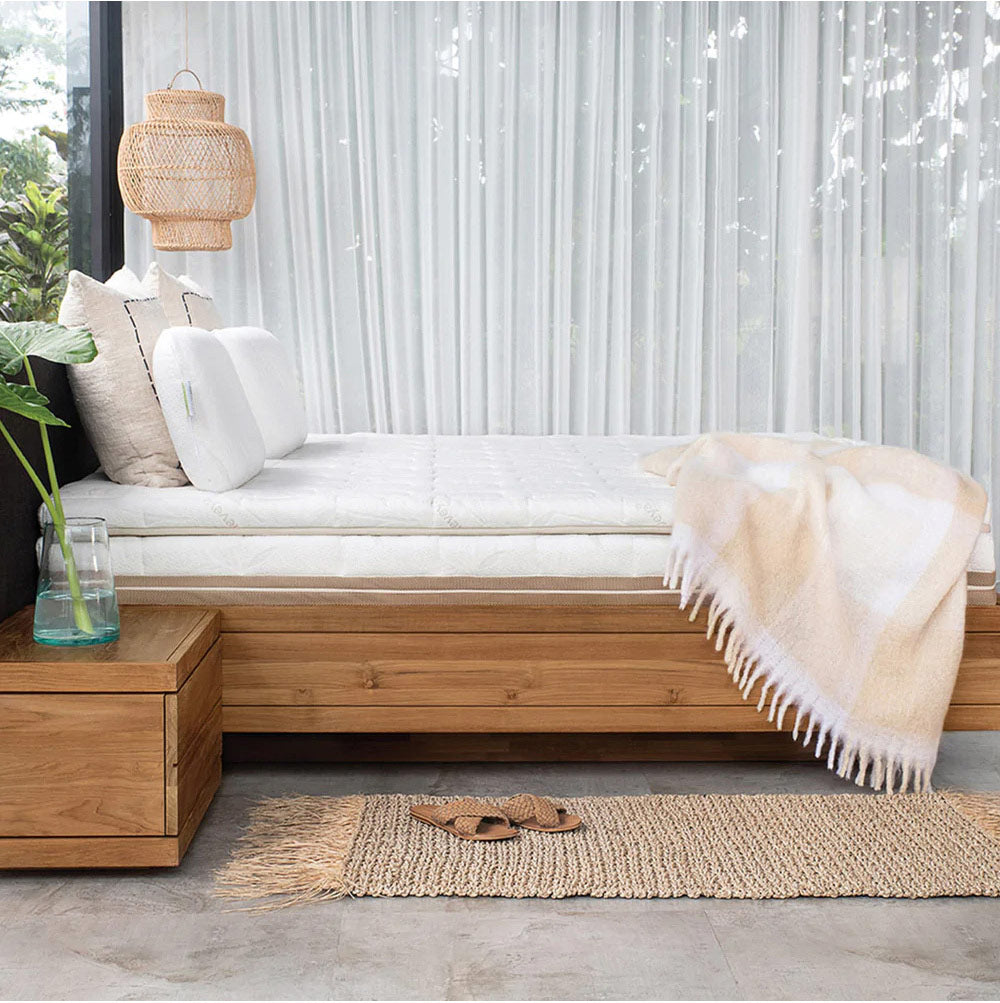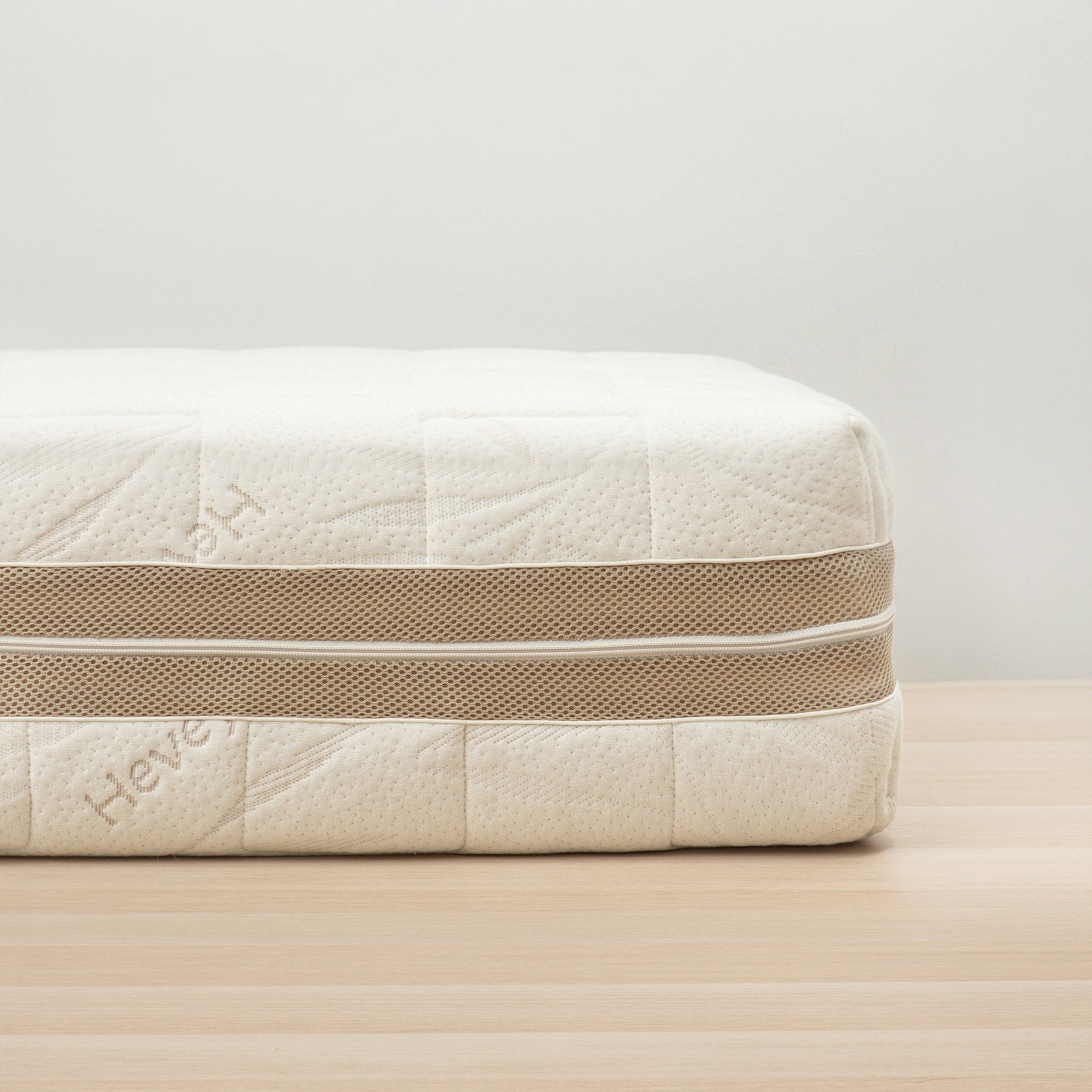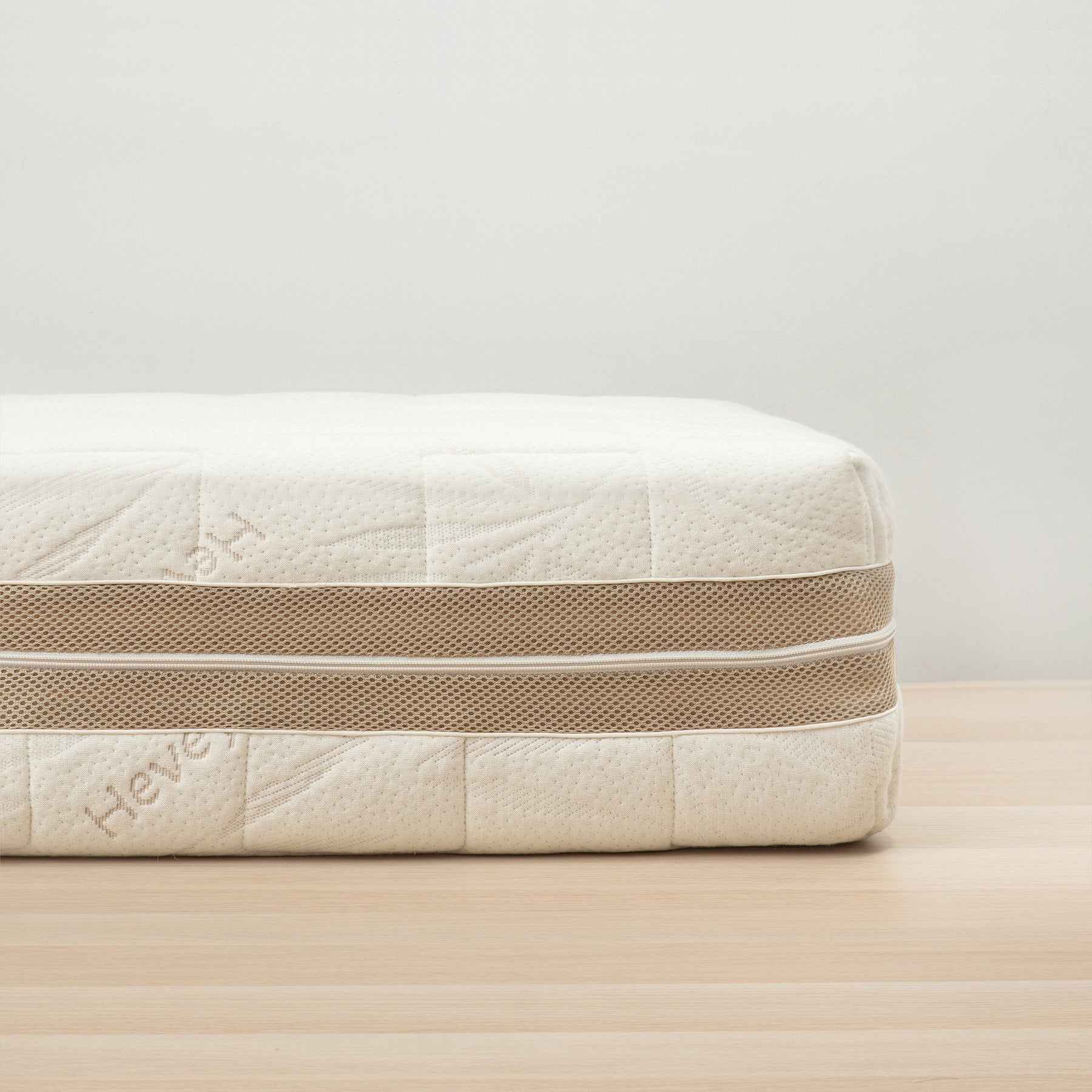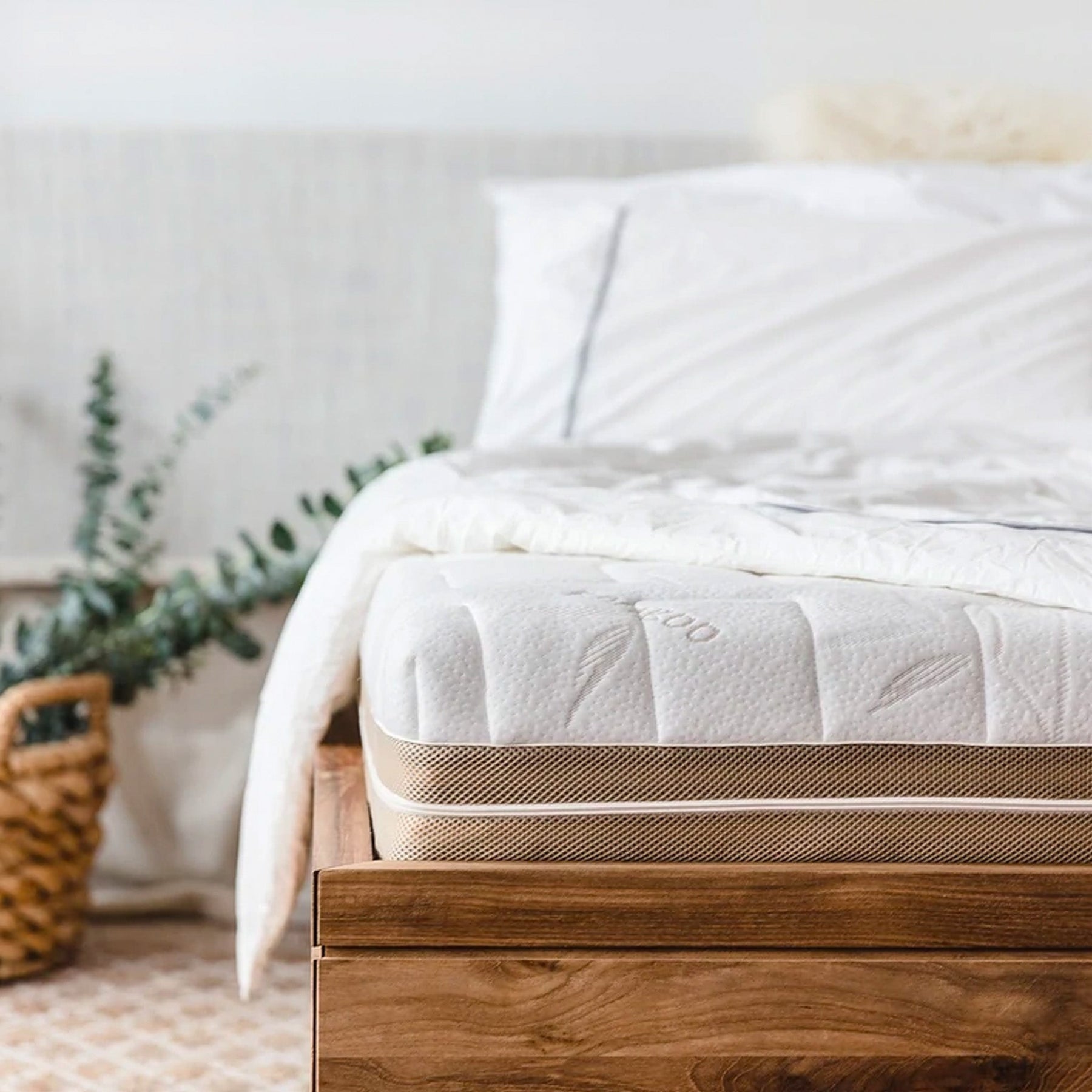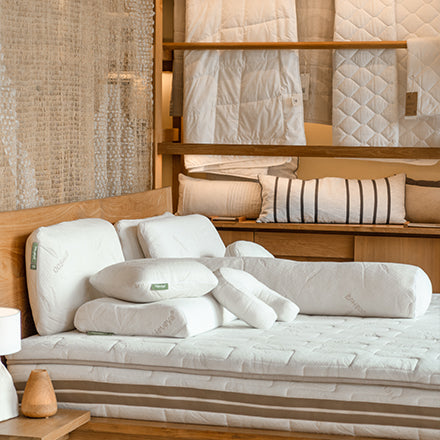The wonders of a good night’s sleep are truly endless. A quality slumber not only promotes physical and mental health - but also protects your delicate spine over time. As sleep consultants, we’re often asked; can a mattress cause back pain?
If one has ever experienced upper back pain and lower back pain before, it is only common to wonder if your mattress is the cause and whether investing in a quality mattress would help reduce back pain. If you often find yourself tossing and turning at night due to aches and stiffness, waking up with numb shoulders and feeling unbelievably tired in the mornings; your mattress may be the culprit!
This leads us to the question; What type of mattress is best for back pain?
The secret lies within your own unique body - it is essential to find a firmness level of mattress that is catered to your particular height and weight. The best mattress we usually recommend for a bad back is of medium-firm density. While it is important not to have an overly firm mattress for back pain, it is equally important to ensure that your bed is not too soft either!
Effects of sleeping on a soft bed

The Hammock-effect. When the bed is too soft and sags too much, the body will follow the curves of the sagged mattress. In this case, we speak of the “hammock-effect”, illustrating the abnormal curve in the spine. Different researchers point out that in order to support the body, there should be no sign of the hammock-effect visible. As illustration A shows, the spine is not aligned correctly and will not relieve back pain.
Limited freedom of movement and moisture drainage. A mattress that is too soft, would contour the body too extensively. In this case, the sleeper would need to use muscles to stabilize the body in an adequate sleeping position. As continuously making use of our muscles during our sleep is next to impossible, the body will bend back into the sagged pit, causing limited freedom of movement and strain for certain muscle groups - this explains why you wake up feeling so tired and stiff in the mornings!
Effects of sleeping on a hard bed

Pressure points. Contrary to popular belief, there are actually no known benefits of sleeping on a firm mattress if it is too firm for your body height and weight. A mattress that is too firm for your body type will only block your spine from contouring naturally into your mattress - leading to pressure points and aches.
Spinal misalignment. A mattress which is too firm will not support your spine in its normal alignment. This often causes long term problems from the lack of proper support for the spine. For someone with back pain, a firm mattress can cause all sorts of problems as the body tries unsuccessfully to compensate for the lack of lower back spinal support.
Lack of conformability. A firm mattress will not conform properly to your body, leaving gaps between your body and the bed. This means some areas of your body will simply not be supported by an overly firm mattress, and this will lead to additional pain if you have a bad back. Ideally, a mattress should give you good supportiveness but still conform to your body's contours.
Beware of “Orthopaedic” labelled products
It’s understandable to assume that the best mattress for back pain is the one with a generic “orthopaedic” stamp attached to it. However, this is a substantial myth. The truth is that there exists no industry standard requirement, regulation, or any specific test for a mattress to pass in order to be labelled as “orthopaedic”.
It is true that reputable orthopaedic mattresses have indeed been designed with the goal of supporting the joints and spine to relieve pain in mind. However, unreputable mattress brands have taken advantage of this term purely for marketing ploys; this results in a higher price tag without any genuine benefit for the sleeper in return. Rather, it is a far better sign of quality of a mattress to be recommended by an independent party such as an osteopath, instead of it being touted as "orthopaedic" by the manufacturer.
However, a truly orthopaedic mattress has no guarantee that it will necessarily be a good fit for your body type. As mentioned earlier: each person's body is different! Thus, each cause of back pain manifests differently. This is why sampling a mattress and its variables is the only true way of knowing whether it will relieve any aches and pains before you make this important investment.
The best type of mattress material for back pain
If you have back pain, you'll be delighted to know that today's manufacturing offers better relief and more options in different mattress materials than ever in the past. Latex mattresses and memory foam mattresses are currently the most widely recognized options for helping to relieve back pain problems such as slipped disc and scoliosis. They both have different sets of pros and cons.
Latex mattress benefits
What is a Latex mattress?
A Latex mattress is made from the sap of the rubber tree, and is a natural option which offers a superb balance of support plus comfort. The inherent bounciness of a latex mattress allows it to push back against your body - this delivers optimal spinal support for any pre-existing back pain.
A latex mattress contours to each and every unique body shape, height, and weight! This eliminates any pressure points from your body as you sleep, evenly distributing your weight and ensuring proper blood circulation. Each sleeper receives a tailored, happy, sleep experience. What’s more, latex is naturally anti-mould, anti-dust mite, and hypoallergenic! This offering displays far more advantages beyond the relief of back pain.
Learn more:


Low quality mattress Heveya® Latex mattress
* Note: excessive pressure points in the illustration are shown in red.
The illustration above shows the comparison of pressure distribution as the person lays down on a low quality mattress vs a Heveya® latex mattress. When the body's pressure points are evenly distributed and reduced, the sleep comfort and blood circulation is better.
Similarly, Memory Foam also conforms to the shape of the body, which can feel very comfortable. However, a big disadvantage to Memory Foam is that it can emit a chemical smell and feels rather hot in comparison to the breathability of latex due to its open-cell structure. Originally, Memory Foam was designed to hold the wounds of hospital patients - thus the high absorption of energy and movement. This essentially translates to your body having to do more work when turning over in bed, which may exacerbate back ache after sleeping.
Learn more:
6 Mattress shopping tips for those with back pain
- Shop for a mattress in the later day, this is when back pain is more likely to be present. This increases the likelihood of purchasing a mattress that meets your expectations of the support plus comfort it can provide when you need it most.
- Bring along your own pillow (alternatively, consider shopping for a new pillow while there). Either way, you'll want to test out the mattress the same way you plan to be sleeping on it at home.
- Bring a friend to look at the way your spine is aligned. When lying on your side on a mattress with proper support for your back, your spine should form a straight line.
- Listen to your body. Pressure points indicate you're on too firm of a mattress. In contrast, if you feel a pronounced sinking effect in your shoulders and hips - then you are lying on too soft of a mattress for your body height and weight.
- Think further than just your back, shoulders, and hips. A good mattress for your back should keep your head and heels in proper alignment too. It's all too tempting to assume the head and heels are not important when one experiences back problems. However, in reality - the reverse is true: the whole body and its alignment are critical in the management and relief of back pain.
- Shop exclusively from stores which allow you to have an in-home trial of the mattress for up to 100 days. With back pain, it is of utmost importance that you are able to try out your selected mattress in the comfort of your own home. If it proves not to your liking, an honest and quality bedding store should allow you to switch to a more suitable firmness level of their mattress range - free of charge.
The bottom line
The mattress that you decide on will ultimately play a tremendous part in either exacerbating or relieving any aches and pains. So, what is the best type of mattress for back pain? The right mattress for you will allow your spine to be properly supported as you sleep while inducing comfort catered to your particular height and weight. Those with any pre-existing aches or pains should take extra care when exploring mattress options. When back pain relief is found through the right mattress - it has the power to literally change one's life!
